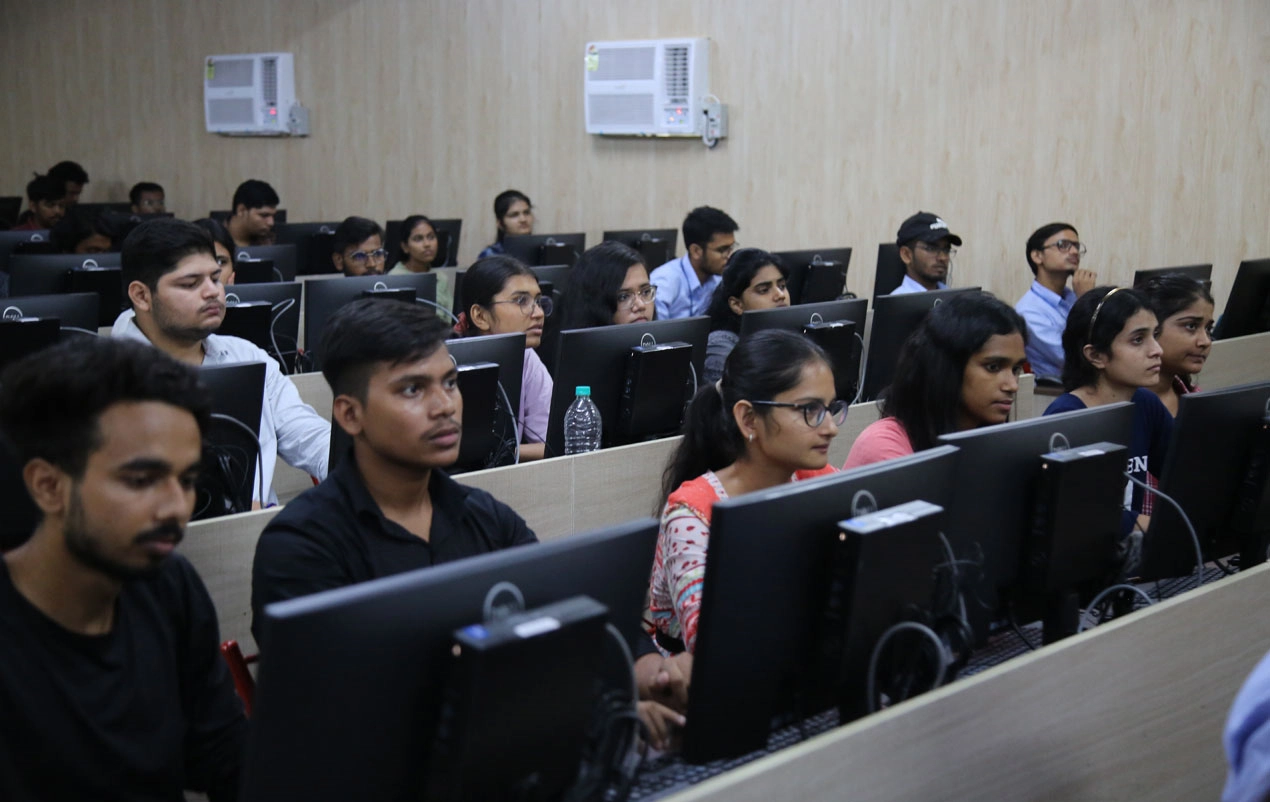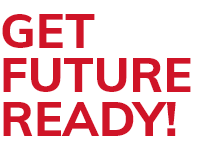Overview
Engineering Futuristic Technology
from Bits to Bytes

NIET offers an undergraduate honours course (B.Tech) in Mathematics and Computing with Specialization in Quantum Computing, which blends the theoretical foundations of mathematics with advanced computational techniques and the emerging domain of quantum technologies. This program is ideal for students who are interested in high-level problem solving, quantum algorithms, and cutting-edge computational paradigms, or who wish to develop unique expertise for the rapidly growing quantum technology job market.
Mathematics, computing, and quantum science are at the forefront of the next technological revolution. Industries ranging from cryptography to pharmaceuticals, from artificial intelligence to financial modeling, are exploring quantum computing to achieve breakthroughs that classical computing cannot match. This integration impacts security, processing speed, optimization, and scientific discovery. Organizations require professionals who can design quantum algorithms, understand complex mathematical structures, and apply computational models to solve real-world challenges.
The B.Tech program in Mathematics and Computing with Specialization in Quantum Computing equips students with expertise in algorithm design, data structures, programming, computational modeling, optimization, machine learning, cryptography, and quantum computing fundamentals. The quantum computing specialization covers topics such as quantum mechanics for computing, quantum gates and circuits, Bloch sphere representation, quantum algorithms (Shor’s, Grover’s), quantum cryptography, and quantum machine learning.
Alongside this, students gain strong skills in advanced mathematics including linear algebra, probability and statistics, numerical methods, discrete mathematics, and differential equations. This combination of mathematical depth, computing expertise, and quantum specialization prepares graduates for research, academia, and high-impact roles in industries such as AI, cybersecurity, finance, healthcare, and emerging quantum technology enterprises.
Vision
To be a Centre of excellence in Mathematics and Computing education and research, fostering innovation, interdisciplinary knowledge, and ethical values to address emerging global challenges in science, technology, and industry.
Mission
- Impart quality education in mathematics, computing, and quantum technologies through a balanced blend of theoretical foundation and practical skills.
- Develop competent professionals equipped with core computer science knowledge and advanced mathematical thinking to solve complex real-world problems.
- Promote interdisciplinary research and innovation in areas like data science, cryptography, quantum computing, artificial intelligence, and high-performance computing.
- Instill ethical values, leadership qualities, and lifelong learning habits to contribute meaningfully to society and the global scientific community.
Program Educational Objectives
-
PEO1: Foundational Expertise and Core Competency
Graduates will build a strong foundation in mathematics, computer science, and quantum computing, enabling them to analyze, design, and develop solutions for complex problems across diverse domains.
-
PEO2: Career Excellence and Lifelong Growth
Graduates will achieve professional success in academia, research, industry, or entrepreneurial ventures by continuously upgrading their knowledge and adapting to technological advancements.
-
PEO3: Research, Innovation, and Emerging Technologies
Graduates will contribute to interdisciplinary research, product development, and innovation in cutting-edge areas such as quantum computing, AI/ML, cybersecurity, and computational sciences.
-
PEO4: Ethical Leadership and Societal Responsibility
Graduates will exhibit leadership, effective communication, teamwork, and uphold ethical standards while addressing societal, environmental, and global challenges.
Program Outcomes (POs)
Our graduates will be able to
- Engineering Knowledge: Apply knowledge of mathematics, natural science, computing, engineering fundamentals and an engineering specialization as specified in WK1 to WK4 respectively to develop to the solution of complex engineering problems.
- Problem Analysis: Identify, formulate, review research literature and analyze complex engineering problems reaching substantiated conclusions with consideration for sustainable development. (WK1 to WK4)
- Design/Development of Solutions: Design creative solutions for complex engineering problems and design/develop systems/components/processes to meet identified needs with consideration for the public health and safety, whole-life cost, net zero carbon, culture, society and environment as required. (WK5)
- Conduct Investigations of Complex Problems: Conduct investigations of complex engineering problems using research-based knowledge including design of experiments, modelling, analysis & interpretation of data to provide valid conclusions. (WK8)
- Engineering Tool Usage: Create, select and apply appropriate techniques, resources and modern engineering & IT tools, including prediction and modelling recognizing their limitations to solve complex engineering problems. (WK2 and WK6)
- The Engineer and The World: Analyze and evaluate societal and environmental aspects while solving complex engineering problems for its impact on sustainability with reference to economy, health, safety, legal framework, culture and environment. (WK1, WK5, and WK7)
- Ethics: Apply ethical principles and commit to professional ethics, human values, diversity and inclusion; adhere to national & international laws. (WK9)
- Individual and Collaborative Team work: Function effectively as an individual, and as a member or leader in diverse/multi-disciplinary teams.
- Communication: Communicate effectively and inclusively within the engineering community and society at large, such as being able to comprehend and write effective reports and design documentation, make effective presentations considering cultural, language, and learning differences.
- Project Management and Finance: Apply knowledge and understanding of engineering management principles and economic decision-making and apply these to one’s own work, as a member and leader in a team, and to manage projects and in multidisciplinary environments.
- Life-Long Learning: Recognize the need for, and have the preparation and ability for i) independent and life-long learning ii) adaptability to new and emerging technologies and iii) critical thinking in the broadest context of technological change. (WK8)
Program Specific Outcomes (PSOs)
Our graduates will be able to
- Mathematical and Computational Proficiency Graduates will be able to apply foundational and advanced knowledge of mathematics, statistics, and algorithmic thinking to analyze and solve real-world problems using computational techniques.
- Specialized Competency in Quantum and Emerging Technologies Graduates will be able to design, simulate, and implement solutions using quantum computing, data science, and AI tools, demonstrating the ability to adapt and innovate in emerging technology domains.

















